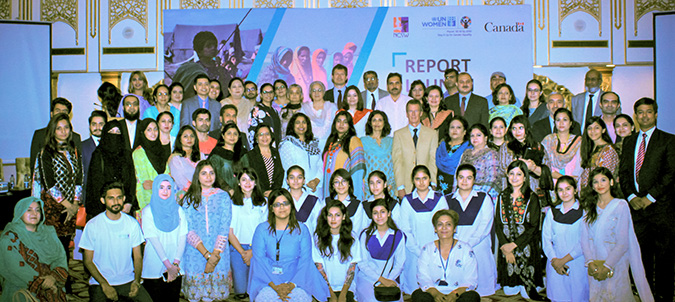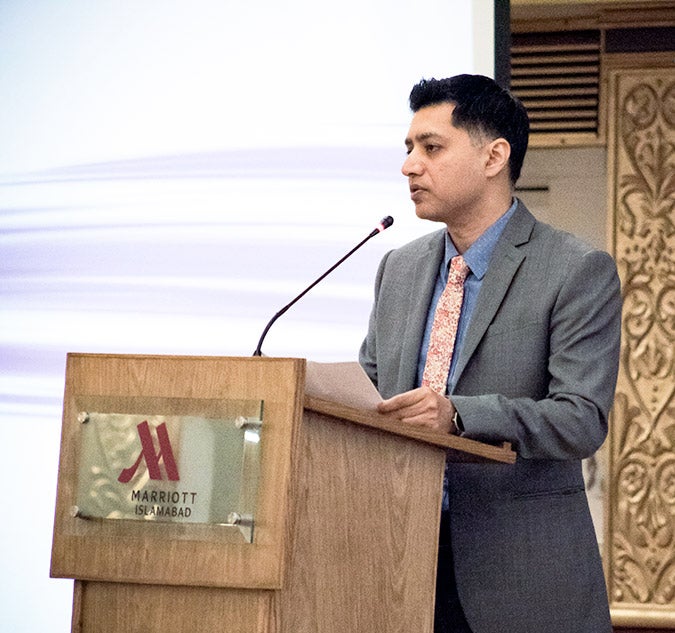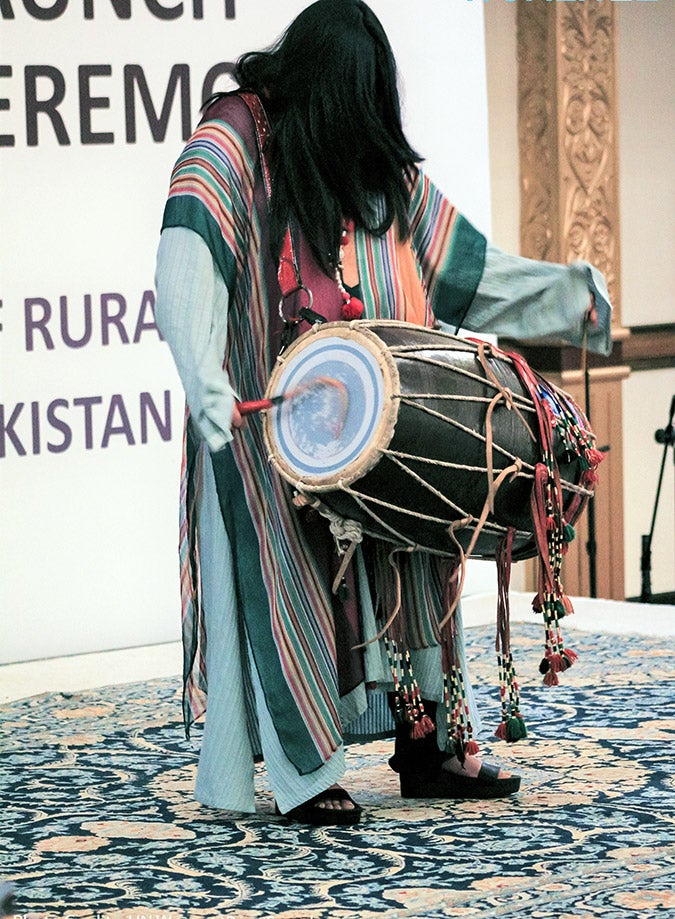Access to training and technology can help Pakistan’s rural women, UN Women study says
Date:
Author: Anam Abbas
Islamabad, Pakistan — Rural women play a key role not only in ensuring income and food security for their households, but also in improving livelihoods and overall well-being in their communities. But their work is under-valued and they face big barriers in improving their own lives.
On 19 July, UN Women Pakistan, in collaboration with National Commission on the Status of Women and supported by Canadian High Commission, released Rural Women in Pakistan: Status Report 2018 at an event in Islamabad attended by ambassadors, Government officials, and representatives of rural development, youth, and civil society organizations.

The report highlights the challenges these women face in education, finding work, agricultural subsistence and climate change, gender-based violence, and paid and unpaid employment.
The report says that for women in agriculture, the returns to labour are low: only 40 per cent of them have paid employment, and 60 per cent do unpaid work on family farms and enterprises. That unpaid work is worth PKR 683 billion (USD 5.335 billion), or 2.6 per cent of the country’s GDP.
The report’s recommendations include providing rural women with connectivity, education and skills training, added value to their work, reproductive rights and land rights. It says technology can dramatically improve their lives, whether it be labour-saving devices for domestic work or tools for agricultural work. Value can be added to women’s work, it says, by improving their access to agricultural inputs, using simple technologies to connect them to markets and information sources, giving them access to the financial system through mobile wallets and online banking, and removing conventional barriers to accessing credit such as collateral or the need for a male guarantor.

Jamshed Kazi, Country Representative of UN Women Pakistan, said: “This event is not just a report launch with lots of facts and figures about rural ’s women’s health, education, social protection and economic participation. This morning is also about celebration and recognition of the phenomenal contribution that rural women make not just economically, but also politically, socially and culturally in their communities.”
Roshan Bharucha, Federal Minister of Human Rights, said: “Rural women play important roles in agriculture, working in the fields and with livestock. They play significant roles in the economy of our country. They should be encouraged by giving them training and microcredit, which would lead them towards self-employment, which is the need of the day.”
Said Perry Calderwood, High Commissioner of Canada: “Advancing women empowerment is at the heart of our development assistance. It is an objective, but also a key to achieving our overall goal of reducing poverty and advancing sustainable development. This is the central message of our Feminist International Assistance Policy.”
“Women are the backbone of Pakistan's rural economy; however, they remain invisible -- uncounted and inadequately compensated and their reproductive and care work taken for granted. The rural women status report highlights the multidimensional nature of rural women's work, their vulnerability, and identifies the drivers of change that could transform their lives along with that of society and country,” said Khawar Mumtaz, Chairperson of National Commission on the Status of Women.
Yasmin Ziadi, Director of the Center of Gender and Policy Studies, which wrote the report, highlighted the need to introduce and implement gender-responsive policies. A panel discussion, moderated by Roshaneh Zafar, discussed the strategies to improve the status of rural women. The panelists were: Khawar Mumtaz, Chairperson, National Commission on the Status of Women; Shaheen Khan, Advisor, Learning & Innovation, Higher Education Commission; Asma Haider, Member, Social Sector, Ministry of Planning, Development and Reform; Mina Dowlatchahi, Representative, Food and Agriculture Organization; Muhammed Azeem Khan, Center for Rural Economy; and Fajer Rabia, Executive Director, Pakistan Alliance for Girls Education.

In closing the event, Neil Buhne, UN Resident Coordinator, said: “Upholding gender equality and dignity -- cross-cutting elements of Agenda 2030 and the explicit aims of SDGs 5 and 10 -- requires concerted, well-coordinated action by all duty bearers, institutions and communities. Building on the progress Pakistan has made to date, we will leverage the UN’s experience, resources and expertise to bolster Government efforts to promote gender equality and dignity.”
Buhne was referring to the 2030 Agenda for Sustainable Development adopted by United Nations Member States in 2015, and its goals to achieve gender equality and reduce inequality within and among nations.
For more information, please contact:
Anam Abbas
Communications Officer, UN Women
Islamabad, Pakistan
Cell: +92 346 850 2117Email: anam.abbas@unwomen.org | http://pakistan.unwomen.org